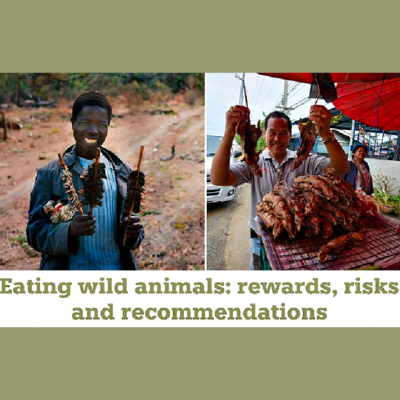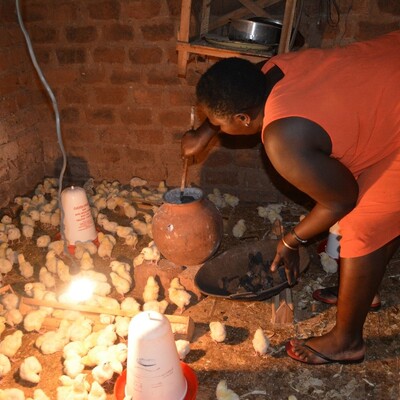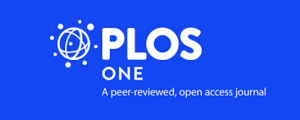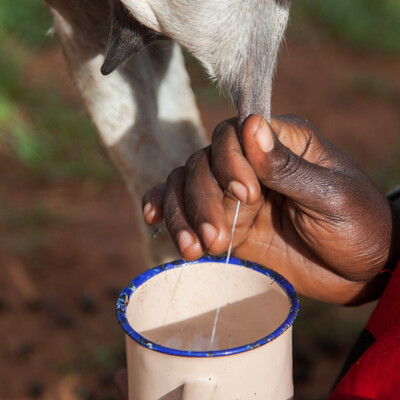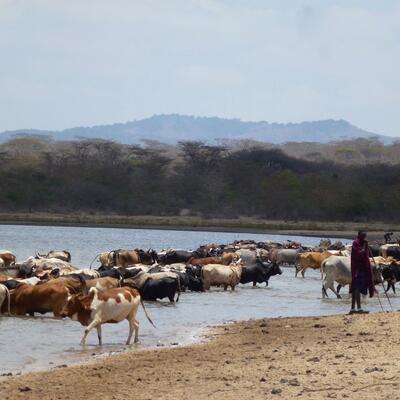

HEAL project launches new guide to address One Health hazards in pastoral areas
The One Health for Humans, Environment, Animals and Livelihood (HEAL) project has published a new guide on using community conversations to deal with One Health hazards such as antimicrobial resistance, zoonoses and food safety in pastoral communities in eastern Africa. The guide presents a four-session process focusing on human and animal health hazards arising from specific pastoral practices and behaviours such as daily interactions with animals, animal bites, management of food and water, and management of sick and dead animals.
Behaviour change is a complex process that is influenced by many factors and conventional methods of engaging community members often fall short of promoting sustained behaviour change. The guide explains how inclusive community engagement processes between community members and trained facilitators using methods such as storytelling, scenarios, role plays and illustrations can be used to collectively identify health issues, analyse constraints and explore actions to address the issues.
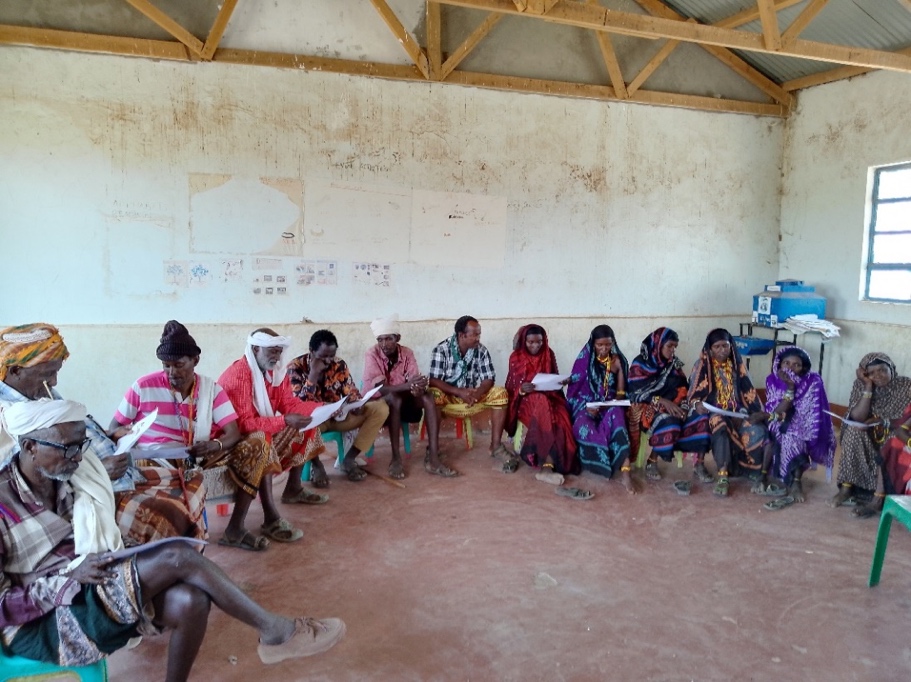
‘In pastoral communities, these behaviour change approaches consider how people interact with livestock and the environment. Conversation sessions happen sequentially and progressively, typically occurring biweekly or monthly to allow time for participants to practise new behaviours and share information with other community members,’ notes the guide.
Held in community centres that are familiar and comfortable for community members, these conversations are scheduled at convenient times, especially for women who may have household responsibilities. Sessions are facilitated by local partners who speak the native languages and are well-acquainted with the communities and their contexts.
The four-session process can help community members gain relevant knowledge and attitudes to help them make positive behaviour changes to protect themselves, their families and their communities against One Health hazards. It can also encourage them to take actions to protect their health, the health of their animals and the environment.
So far, ILRI has trained HEAL partners and local government staff in Ethiopia, Kenya and Somalia to hold community conversations with multi-stakeholder innovation platform members through this guide.
Download the guide:
Community Conversations: Facilitating awareness and behaviour change regarding One Health hazards
Learn more about the community conversations approach:
You may also like

ILRI News
ILRI’s contribution to climate-resilient agriculture conference in Bhutan: A path towards sustainable livestock systems
ILRI News
CGIAR Antimicrobial Resistance Hub enhances the capacity of laboratory professionals across low- and middle-income countries against antimicrobial resistance
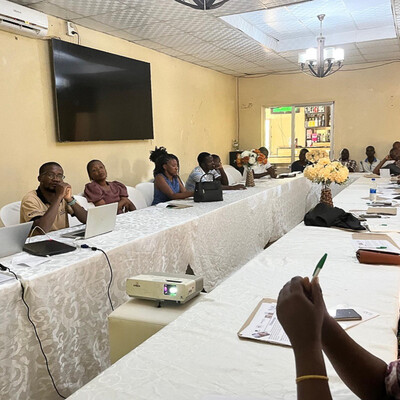
ILRI News
ILRI trains poultry farmers on responsible antibiotic use to reduce AMR in Lilongwe, Malawi
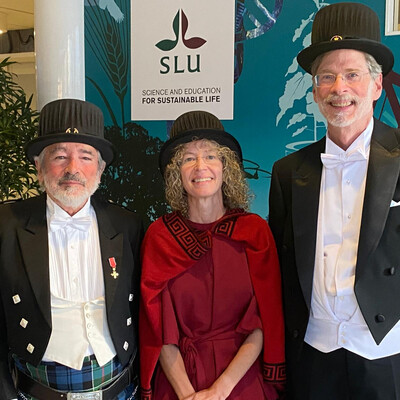
ILRI News
Delia Grace Randolph appointed 'Honorary Doctor' by the Swedish University of Agricultural Sciences
Related Publications

Analysis of antibiotic use and access to drugs among poultry farmers in Kenya
- Muloi, Dishon M.
- Kasudi, Mitchelle R.
- Murungi, Maurice K.
- Ibayi, Eugine L.
- Kahariri, S.
- Karimi, C.
- Korir, Max
- Muasa, B.
- Mwololo, D.
- Ndanyi, R.
- Ndungi, R.
- Njiru, J.
- Omani, R.
- Owada, R.
- Omulo, S.
- Azegele, A.
- Fèvre, Eric M.
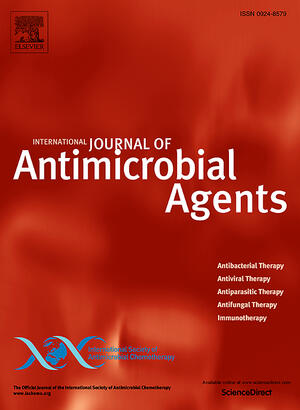
Epidemiology of antimicrobial resistant diarrheagenic Escherichia coli pathotypes from children, livestock and food in Dagoretti South, Nairobi Kenya
- Okumu, Noah O.
- Muloi, Dishon M.
- Moodley, Arshnee
- Ochieng, Linnet
- Watson, J.
- Kiarie, Alice
- Ngeranwa, J.J.N.
- Cumming, O.
- Cook, Elizabeth A.J.
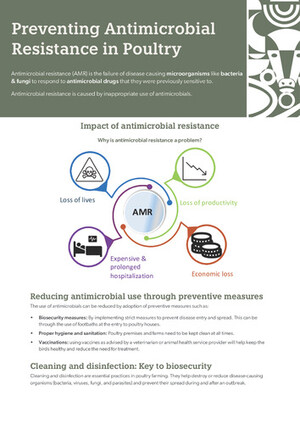
Preventing antimicrobial resistance in poultry
- Directorate of Veterinary Services, Kenya
- International Livestock Research Institute

Systematic review and meta-analysis on prevalence and antimicrobial resistance patterns of important foodborne pathogens isolated from retail chicken meat and associated environments in India
- Ayoub, H.
- Kumar, M.S.
- Dubal, Z.B.
- Bhilegaonkar, K.N.
- Hung Nguyen-Viet
- Grace, Delia
- Thapliyal, S.
- Sanjumon, E.S.
- Sneha, E.N.P.
- Premkumar, D.
- Rajendran, V.K.O.
- Deka, Ram Pratim





